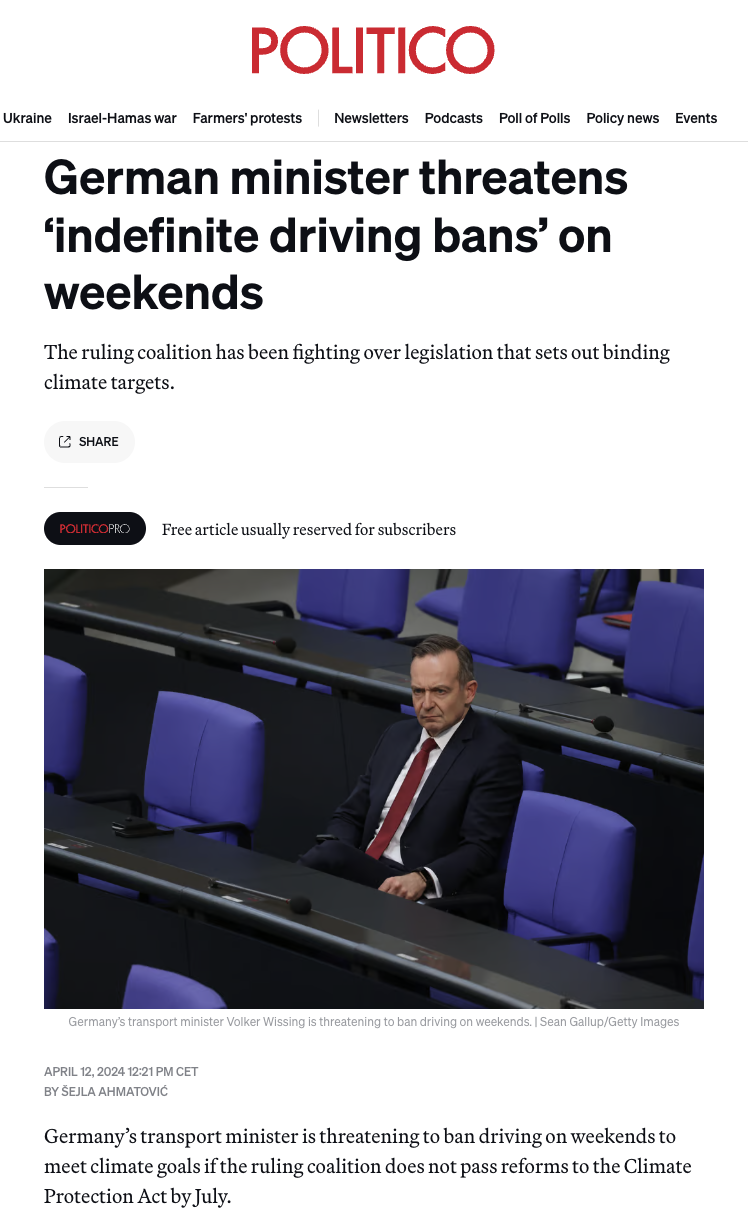https://www.cfact.org/2020/04/28/question-climate-authority/
A growing number of Americans are getting fed up with state coronavirus lock-downs that are keeping their businesses closed and destroying their livelihoods. They are rightly questioning the rationale and science that influenced these government edicts, including by protest, as the economically destructive effects are increasingly unacceptable and not sustainable.
Americans should do the same for political climate science that exerts pervasive influence in society to reorder our lifestyles and economy over time, since it is unwarranted.
Both coronavirus and climate policies imposed by governments in the United States and worldwide are attempting massive and destructive changes on societies. The important difference is that coronavirus policies were imposed suddenly and swiftly out of genuine fear that millions of people were vulnerable to imminent death. Understandably, elected officials accepted and acted on advice from public health experts to lock down the economy with stay-at-home orders and closure of “non-essential” businesses to save lives.
It likely is no coincidence that growing impatience from Americans over coronavirus lockdowns comes simultaneous with the drastic reduction in projected deaths from the virus models and “flattening the curve” of infections. The pushback also comes on the heels of recent studies that indicate millions of people were infected with coronavirus, thus reducing the death rate closer to recurring influenza levels. If true, enduring this highly contagious virus is becoming preferable to remaining cloistered, losing economic livelihoods, waiting in food lines, and becoming wards of the state.
The analogies between the legitimate coronavirus scare and the illegitimate climate change scare are uncanny, except the latter is more long-term and gradual, with society being the metaphorical frog being slowly boiled to submission.
Politicians, entertainers, bureaucrats, and media figures have claimed for decades there is “scientific consensus” about man-made global warming that is getting inexorably hotter to the point where the planet itself faces an “existential threat,” now within three decades. The culprit supposedly is more carbon dioxide in the atmosphere from too many people and too much production and use of fossil fuels like oil, coal and natural gas that will result in arctic ice melt, flooded coastal cities, extinction of animal species, and humankind itself doomed. You’ve heard the riffs.
Popular culture demands we fight this man-made climate change by changing our lifestyles and our economic system. Sound familiar? We’ve been hearing the same message about the coronavirus, which was warranted in the short-term, but not indefinitely.
Climate has indeed warmed by about half a degree in the last 40 years, and has been warming overall since the late 1800’s, upon the end of the “Little Ice Age.” No denying that. In fact, climate has warmed and cooled by several degrees since time began. Just how did the planet escape from ice ages and begin to warm? Not from using carbon-emitting fossil fuels, which were still underground. To warm out of an “ice age” also is to acknowledge the planet’s climate got cooler to begin one.
The climate effect of carbon dioxide emissions also must be properly understood. As CFACT reported, carbon from fossil fuels comprises less than one-fifth of the planet’s CO2 emissions in the atmosphere. Importantly, the share of all CO2 in the atmosphere is miniscule, amounting to four one-hundredths of a percent (0.04%). If fossil fuel use worldwide ceased, the temperature would drop only one-tenth of one degree Celsius by 2050, using climate data and models maintained by the National Center for Atmospheric Science, a federal agency.
Eliminating fossil fuels on a global scale accomplishes effectively nothing from a climate standpoint. If you stood outside and the temperature changed by one degree—much less, a tenth of a degree—you wouldn’t notice; nor would polar bears. But we should destroy (or “replace”) fossil fuels, regardless? Assuming this were possible in 30 years, it is neither practical nor necessary.
This carbon scientific reality makes the costly efforts of states like California, Virginia and New York to “fight climate change” more pointless, as they are mere specks on a planetary scale.
Americans should question every climate alarmist who demands we reduce our lifestyle and our oil-based economies to reduce carbon to “fight climate change.”
The do-as-I-say-not-as-I-do wealthy climate alarmists such as former Vice President Al Gore, Oscar-winning actors Jane Fonda and Leonardo DiCaprio, and the British House of Windsor (i.e., Charles and Harry), are not changing their opulent lifestyles any time soon to reduce their massive carbon footprints. Neither should the rest of us.
Author
 Peter Murphy
Peter Murphy
Peter Murphy, a CFACT analyst, has researched and advocated for a variety of policy issues, including education reform and fiscal policy. He previously wrote and edited The Chalkboard weblog for the New York Charter Schools Association, and has been published in numerous media outlets, including The Hill, New York Post and the Wall Street Journal.


